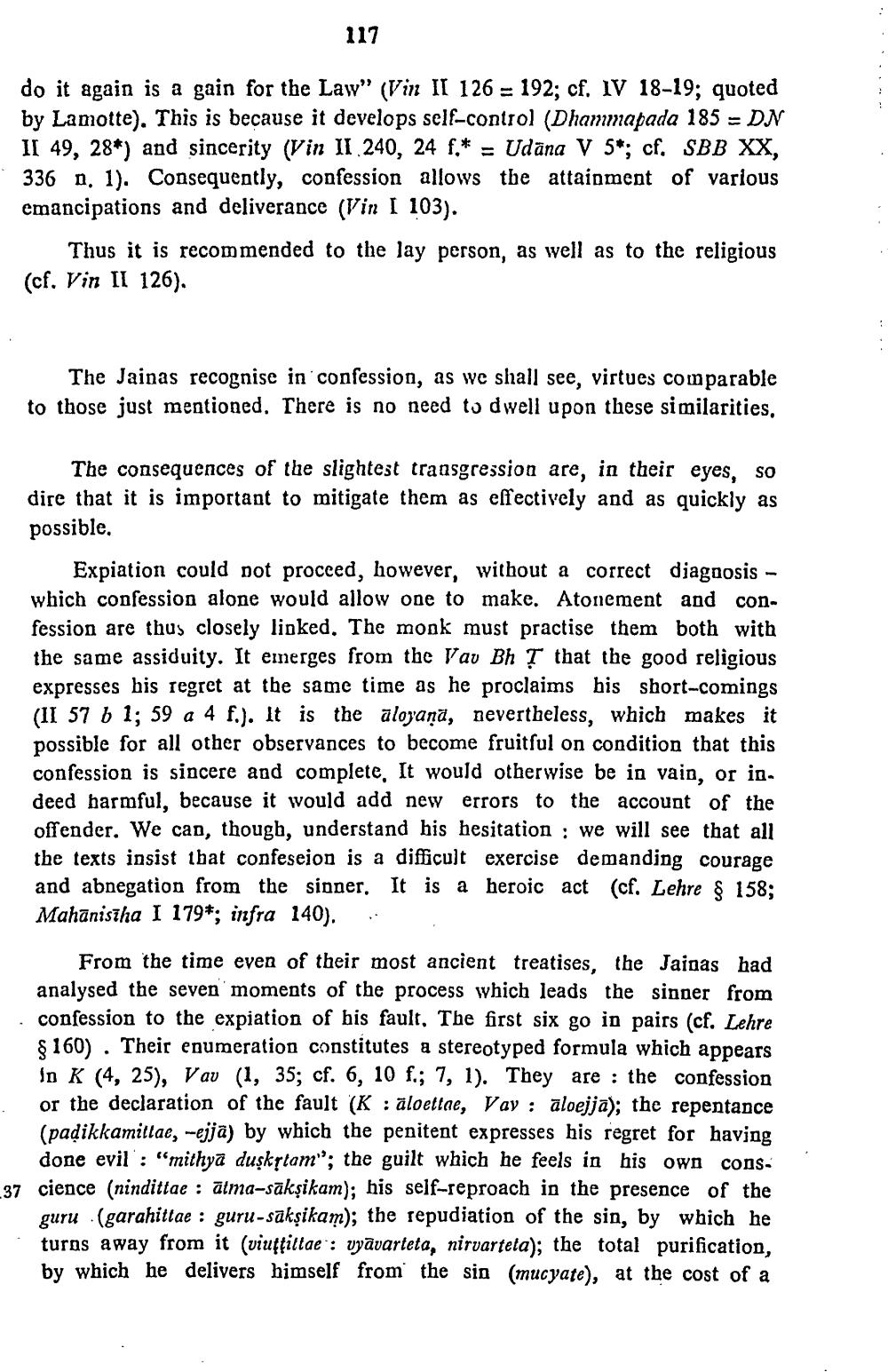________________
117
do it again is a gain for the Law" (Vin II 126 = 192; cf. IV 18-19; quoted by Lamotte). This is because it develops self-control (Dhammapada 185 = DN II 49, 28*) and sincerity (Vin II 240, 24 f.* = Udāna V 5*; cf. SBB XX, 336 n. 1). Consequently, confession allows the attainment of various emancipations and deliverance (Vin I 103).
Thus it is recommended to the lay person, as well as to the religious (cf. Vin II 126).
The Jainas recognise in confession, as we shall see, virtues comparable to those just mentioned. There is no need to dwell upon these similarities.
The consequences of the slightest transgression are, in their eyes, so dire that it is important to mitigate them as effectively and as quickly as possible.
Expiation could not proceed, however, without a correct diagnosis - which confession alone would allow one to make. Atonement and confession are thus closely linked. The monk must practise them both with the same assiduity. It emerges from the Vav Bh ? that the good religious expresses his regret at the same time as he proclaims his short-comings (11 57 6 1; 59 a 4 f.). It is the aloyaņā, nevertheless, which makes it possible for all other observances to become fruitful on condition that this confession is sincere and complete. It would otherwise be in vain, or in. deed harmful, because it would add new errors to the account of the offender. We can, though, understand his hesitation : we will see that all the texts insist that confeseion is a difficult exercise demanding courage and abnegation from the sioner. It is a heroic act (cf. Lehre $ 158; Mahānisīha I 179*; infra 140).
From the time even of their most ancient treatises, the Jainas had analysed the seven moments of the process which leads the singer from confession to the expiation of his fault, The first six go in pairs (cf. Lehre $ 160). Their enumeration constitutes a stereotyped formula which appears In K (4, 25), Vav (1, 35; cf. 6, 10 f.; 7, 1). They are : the confession or the declaration of the fault (K : āloettae, Vay : aloejja); the repentance (padikkamillae, -ejjā) by which the penitent expresses his regret for having
done evil : "mithya duşkstam''; the guilt which he feels in his own cons-37 cience (nindittae : alma-sākṣikam); his self-reproach in the presence of the
guru (garahittae : guru-sākṣikam); the repudiation of the sin, by which he turas away from it (viuftiltae : vyāvarteta, nirvarteta); the total purification, by which he delivers himself from the sin (mucyate), at the cost of a




